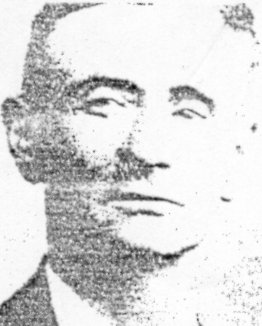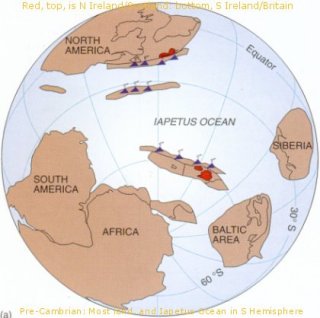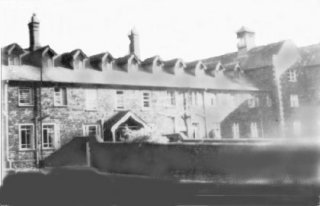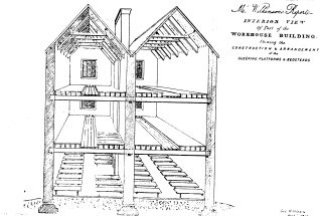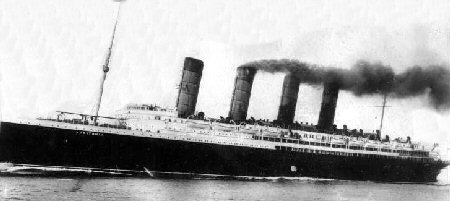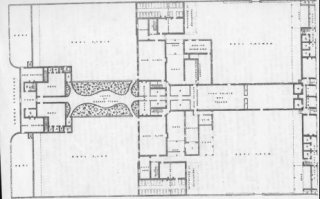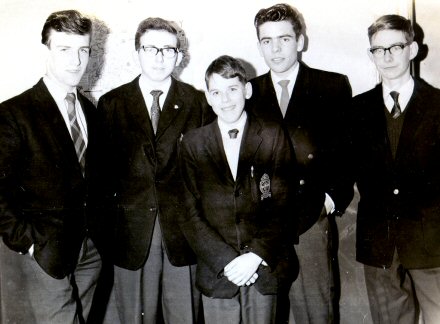This site is dedicated to the men and women, living and deceased, who dedicated their lives to the cause of Newry’s poor and dispossessed. W.F.Cunningham rightly holds a special place among this illustrious few.
Year: 2004
Steps in Earth History
The origin, nature and conditions required for the proliferation of life forms remains one of the great unsolved mysteries of science. One possibility receiving serious consideration is that the earliest life forms came to us from space – perhaps from a nearby planet like Mars (and hence the interest in the experiments on that planet of the Mars rover vehicle Spirit).
Workhouse 8
Numbers gaining admission to Workhouses fluctuated over the decades of the second half of the nineteenth century according to several principal factors.
Chief among these was the outbreak of infectious diseases.
Crop failure, want, starvation and destitution and homelessness consequent upon peasants being driven from their miserable holdings featured high among the causes.
Part 9 is here …
Workhouse 6
In January 1847 there were 111,000 people in Irish workhouses built to accommodate 100,000.
By 1851, a full five years after the Government had declared the Famine over and knighted Trevelyan for his efforts, there were 918 inmates in Newry Workhouse.
Distress in the West was worse.
Emigrants Lists
The following long lists are reproduced solely for the benefit of any Newry exile in search of the ship on which their forebears left Newry or Warrenpoint in the nineteenth century. The ships’ lists are neither representative nor exhaustive.
Paper Clippings
Going through the papers recently, I noted down these snippets with a view to sharing them with you.
Paul Copeland, the Resident Magistrate, warned the offender that his actions could have had very serious consequences. He banned John Ward from driving for 18 months and fined him
New Christians
Newry Journal wishes to congratulate the parents of the following new-born children whose names have appeared in the baptismal lists of the Newry Parish (RC) Bulletin for the first two weeks of January 2004.
Thomas Michael Cunningham, 6 Bath Avenue, Dublin
Josh Hanna, 84 Fifth Avenue, Derrybeg Park
Carlos Robert McNamee, Sinclair Street
James Peter Cinnamond, 10 Fourth Avenue, Derrybeg Park
Gemma Louise Carroll, 21 Drumcashel Villas
Aimee Selfe, 29 Hill Crescent, Damolly
Paul Conor McCabe, 40B Boat Street
Niall Patrick Furlong, 58 Rockfield Heights
Sinead Anne Quinn, 11 Billy’s Road
Eimear Rose Fallon, 10 Forthill Road
Brady Mathieu Walsh-Hughes, 39 Mourneview Park
Joanna Maria Powell, Barcelona
Ronan Cathal McLaughlin, 60 Chapel Road
Sophie Caitlin Murphy, 120 Barcroft Park
Margaret Stacey Ward, 18 Ardaveen
Caitlin Mary Rooney, 47 The Blackthorns
Fionn Domhnall Fearon, 26 Cairn Hill
Alyssa Rose Lennon, 48 Main Avenue
Hanna Veronica Brennan, 86 Barcroft Park
Enda Brian Maguire, 46 Rowallen, Warrenpoint
Adam Damien McLoughlin, 29 Acorn Hill, Bessbrook
Jack Gerard Breen, 74 Ashgrove Road
Shea Padraig Campbell, 17 Berryshill Road
Ellen Mary McEvoy, 20 Spring Farm Heights
Toni Gwendaline Connolly, 6 Warren Hill
Jennifer Teresa Matthews, 27 Talbot Street
Cillian Matthew McArdle, 44 Grinan Road
Aimee Louise Burke, 23 The Blackthorns
Eve Bridie Mullen, 25 Templehill Road
Amy Cliodhna Markey-Coulter, 68A, Chncellors Road
Matthew Damien Hillen, 65 Knockdarragh
Anna Tres Clarke, 62 Rathfriland Road
Harry Michael Meehan, 3 Fern Heights
Workhouse 5
By the end of June 1849 the Master reported that during the last eighteen months 3,265 paupers had received one night’s lodging with supper and breakfast: also that 946 people remained (with relieving officers’ tickets) for the last nine months in the probationary wards, awaiting admission by the Guardians on Board day. It was resolved at the meeting of
If the aim was to clear the workhouse of these categories, it failed. By
Things changed over the next – some say, the last Great Hunger – year.
[Christine Kinealy, acclaimed authority, Fellow of Liverpool University and author of This Great Calamity {Gill & Macmillan 1994} and Great Hunger in Ireland {Pluto, 1997}] begs to differ and argues the emergency continued to 1852 at least].
Lana: Jungle Goddess
It was that picture of the infamous Brother Doc brought this incident to my mind. It seems difficult to believe that such a cruel man could be so na
There is not an ex-CBS Grammar pupil of the late fifties or early sixties who did not fear the Doc’s class worse than the fires of hell itself. It was an age before parental intervention at grammar school level would even be contemplated, so grossly over-severe corporal punishment went unrecorded. Doc topped the list. Pupils returning for the autumn term of the new school year would fearfully await their timetable; if they had the Doc for Latin, Religion or whatever, their worst nightmares were realized and they trembled from morning to night in anticipation of his next class. He was known to have landed a number of teenage boys in Daisy Hill Casualty Department, so badly had he treated them. He was said to have rammed one boy’s head clean through a blackboard.
He never bothered to learn the names of all the pupils in all his classes and I learned to survive by shrinking into myself and never, ever making eye contact with him. This too had to be done subtly. If he suspected you were insulting him so, or cowering before him, you would receive redoubled persecution for the rest of your school career. So you half-hid behind the lad seated in front of you, and should his glance stray in your direction, carefully studied whatever was written on the blackboard as though straining hard to understand its meaning. That counted as a menial or compliant enough attitude with him. He picked on any pupil who stood out, for any reason. The especially tall were commanded to ‘hand me down a star’; the especially studious, mild or shy were scorned as ‘cissies’.
He took a keen interest in GAA and learned the names of any lad good enough to make the school team. This talent usually saved him from the Doc’s excesses. Not always. When the Doc scanned the class to identify his next victim, if he knew no one else by name, then a footballer would do. In our class it was Kevin McGeogh. The practice ceased when Gerry Brown complained that his best players were resigning from school representation because of their treatment by the Doc. He’d arrive in class afterwards and attempt to bribe the previous victim with chocolates or candy – and a cheesy smile. Maybe he was stupid as well as cruel.
Doc never gave us an ‘easy’ class or strayed from strict adherence to the syllabus. So when he came in that day with a grave expression but a chummy attitude, we knew his news must be far out of the ordinary. It was.
‘Your immortal souls are in grave danger!’ he began ominously, before warming to this theme and expanding on it endlessly.
Eventually he came to the point. The local cinema, bowing to the lax morals of a changing time, was soon to show a film that openly and endlessly displayed a young, attractive woman’s bare breasts.
It is impossible to relate to you the facial expressions on the stupefied class of thirty fascinated and frustrated teenage boys. Any expression of interest, much less lewdness, and particularly of amusement, was sure to return the schoolmaster to his normal vicious self.
Sixty eyes tried to convey disinterested acceptance of his timely warning.
The scene was repeated ten times throughout the school that day.
I’ve never been a keen cinema-goer and could name you no more than ten films of all time. I’ll never forget the name of that one! It was, ‘Lana: the Jungle Goddess’.
If that sobriquet is earned simply from displaying the best-ever-seen pair of mammary glands, then goddess she surely was! She might even have been pretty, I can’t remember. I may not even have diverted my eyes upward for the whole two hours.
She didn’t have to act in the part, simply find reason to forever face the cameraman full-on. Two hours of that! We were in heaven.
The Frontier Cinema were delighted to have to retain the film for a whole week, instead of the usual three days: then again for a second week.
This was unheard of popularity. Homeworks were left undone as the Abbey boys begged, borrowed or stole the entrance money.
Not just the Doc, but all the other Brothers became increasingly irate.
The coup-de-grace came on the second Friday night. Perhaps fearing he’d miss it altogether if he waited any longer, the Rev Doc, in his clerical garb but wearing a large hat – perhaps as disguise – strode resolutely along the queuing line of his own pupils. To the last man they glanced quickly away lest they be chosen as the immoral victim.
But Doc’s eyes were focused straight ahead. With a deft tip of the hat to the girl at the ticket booth, he strode straight into the cinema and, significantly laying his hat on his lap he took a seat in the back row.
He later explained to his disbelieving pupils that he had to be fully aware of the horrendous nature of Hollywood’s immoral output. He was on a fact-finding mission.
But many boys lost their faith on that evening.
And it was not Lana’s fault.
